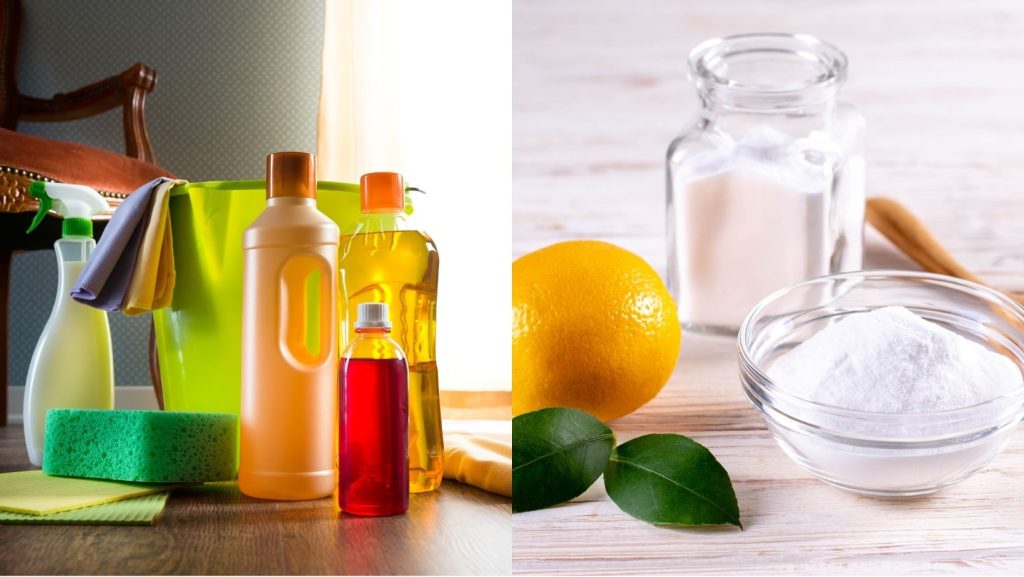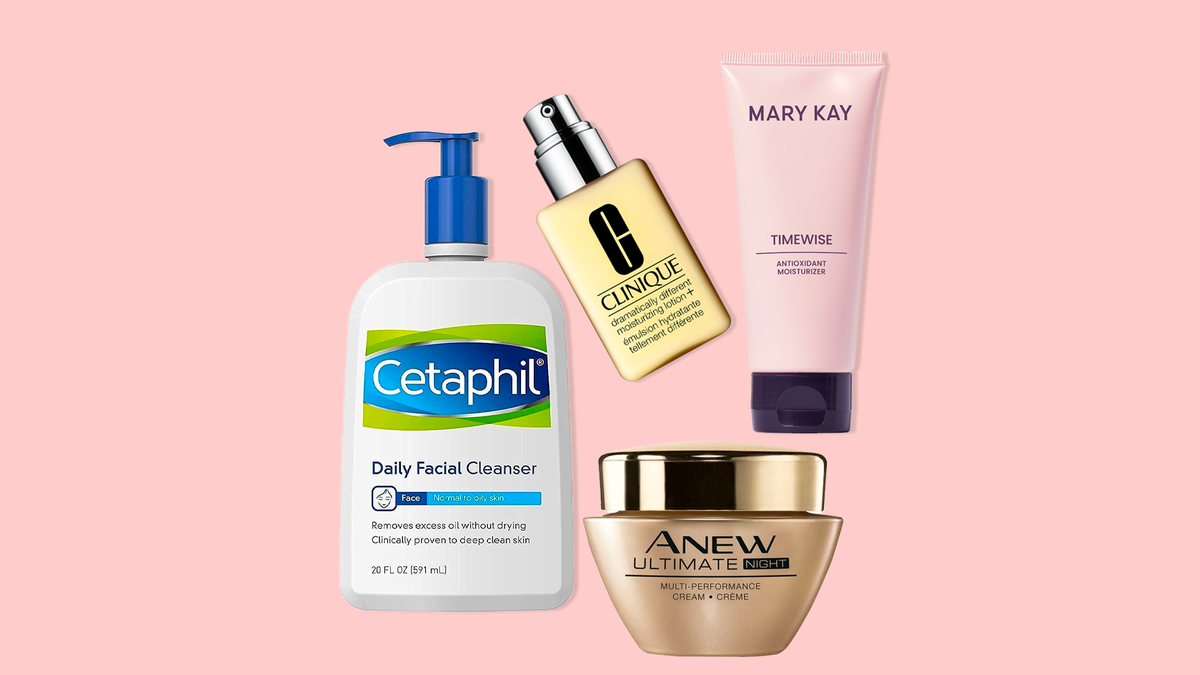


Date: 03 Nov 2025
In today’s beauty-conscious world, skincare enthusiasts are faced with a choice: to go DIY (Do-It-Yourself) or to trust store-bought beauty products. Both approaches have loyal supporters and unique advantages.
While DIY skincare appeals to those seeking natural, cost-effective alternatives, store-bought beauty products attract customers looking for convenience, consistency, and scientifically tested results.
In this guide, we’ll explore the benefits and drawbacks of each, discuss safety concerns with homemade skincare, and highlight when store-bought products are the better choice — helping you make the most informed decision for your skin.

In an age where consumers are becoming more conscious about chemical additives and artificial substances, opting for homemade skincare ensures that you're using pure, natural components. This control allows individuals with sensitive skin or allergies to avoid irritants commonly found in commercial products.
Investing in high-quality skincare products can often lead to significant expenses. On the other hand, making your skincare items can be more cost-effective. Ingredients such as oats, honey, coconut oil, and essential oils can be purchased in bulk at reasonable prices.
Whether it is Christmas, Birthday, a Special Occasion or just because, nothing shows you care more than giving something special you have made yourself. Something that will be a gift for the recipient and his/her skin and hair. And, you save money too!
DIY skincare offers unmatched customization. Whether you’re focusing on hydration, anti-aging, or acne treatment, you can tailor your products to specifically meet your needs. By adjusting the ingredients and concentrations, you can make a product that’s unique to your skin type and preferences.
Most commercial skincare products come in non-biodegradable packaging, contributing to environmental issues. By creating your own skincare, you can utilize eco-friendly containers, reducing your carbon footprint.
Making your own skincare products isn’t just a task; it's a learning experience. You'll gain a better understanding of what your skin needs and which ingredients work best for you. This knowledge empowers you to make informed decisions about skincare and beauty products in the future.
By reusing containers and creating in small batches, making your own products often results in reduced waste. You only make what you need, drastically minimizing the number of unused products and packaging typically seen with store-bought skincare.

Professional formulators in the skincare field who possess an in-depth understanding of skin biology, chemicals, and formulas create high-end and effective skincare products. To guarantee their effectiveness, safety, and best outcomes, these items go through extensive testing.
Professional store-bought skincare companies invest heavily in research and development by using state-of-the-art technologies and scientific advancements. They continue to be at the forefront of skincare innovation by creating cosmetics based on the most recent research and clinical testing.
Professional store-bought skincare products must meet high criteria for both quality and safety. Purity, potency, and stability are ensured through rigorous testing during the manufacturing process, which takes place in controlled lab conditions.
When you spend money on certain store-bought skincare products, you have access to guidance from estheticians or other skincare specialists. They can examine your skin’s needs, make personalized recommendations, and advise you on the best products and practices.
Unlike components cultivated on farms, LAB-DERIVED compounds are manufactured in a much more regulated setting, allowing for the maintenance of purity levels. Using standardized and regulated ingredients is much safer, they reduce carbon footprint and provide consistency and purity.
Professional formulators make it possible to calculate the quantity, concentration levels, combinations of ingredients and effect of specific natural components in certain store-bought skincare brands.
Furthermore, many modern beauty companies are adopting clean beauty standards, using safe, non-toxic, and cruelty-free ingredients. Brands such as The Ordinary, CeraVe, and Paula’s Choice are good examples of this growing movement toward transparency and sustainability.
While DIY skincare may seem harmless, improper mixing, storage, or ingredient combinations can cause irritation, breakouts, or even burns. Ingredients like lemon juice, baking soda, or essential oils — when applied directly to the skin — can disrupt your skin’s pH balance or increase sensitivity to sunlight.
Moreover, DIY skincare lacks preservatives, making it prone to bacterial contamination. This means that your homemade scrub or toner could grow mold or harmful microorganisms in just a few days, especially when stored at room temperature.
Without clinical testing, there’s no guarantee that DIY products deliver long-term results or maintain safety standards — something that reputable cosmetic brands strictly adhere to.
To learn more about skincare ingredient safety, you can check out the American Academy of Dermatology for professional guidance.
There are specific situations where store-bought skincare products clearly outperform DIY alternatives. If you are dealing with acne, hyperpigmentation, wrinkles, or sun damage, professionally formulated products are more effective because they contain active ingredients such as retinol, niacinamide, and hyaluronic acid in controlled concentrations.
Store-bought products are also better for those with sensitive or allergy-prone skin, as they undergo rigorous safety and allergy testing. For instance, dermatologists often recommend hypoallergenic or non-comedogenic formulas that have been clinically proven safe for daily use.
Finally, store-bought items offer long-term reliability — you can maintain a consistent skincare routine without worrying about spoilage or inconsistent results, which is often the case with DIY blends.
Ultimately, the best skincare routine often blends both worlds. You might enjoy a DIY honey mask once a week while using a store-bought serum and moisturizer daily for scientifically backed benefits. The key is balance — understanding your skin’s needs, being aware of product ingredients, and making informed choices.
For the best outcome, consult a dermatologist or licensed skincare specialist before introducing new DIY recipes or switching to new skincare products.
1. Are DIY skincare products safe for all skin types?
Not always. While many natural ingredients are gentle, others like citrus oils or baking soda can irritate sensitive skin. Always do a patch test first.
2. Can I mix DIY and store-bought skincare products?
Yes, but with caution. Introduce new products slowly to avoid irritation or allergic reactions, and make sure their ingredients don’t conflict.
3. What’s the biggest advantage of store-bought skincare?
Consistency and safety. Store-bought skincare is tested for effectiveness, stability, and safety — ensuring reliable results every time.
4. How long can DIY skincare products last?
Most DIY products last only a few days to a week, especially without preservatives. Always store them in clean, airtight containers in the refrigerator.